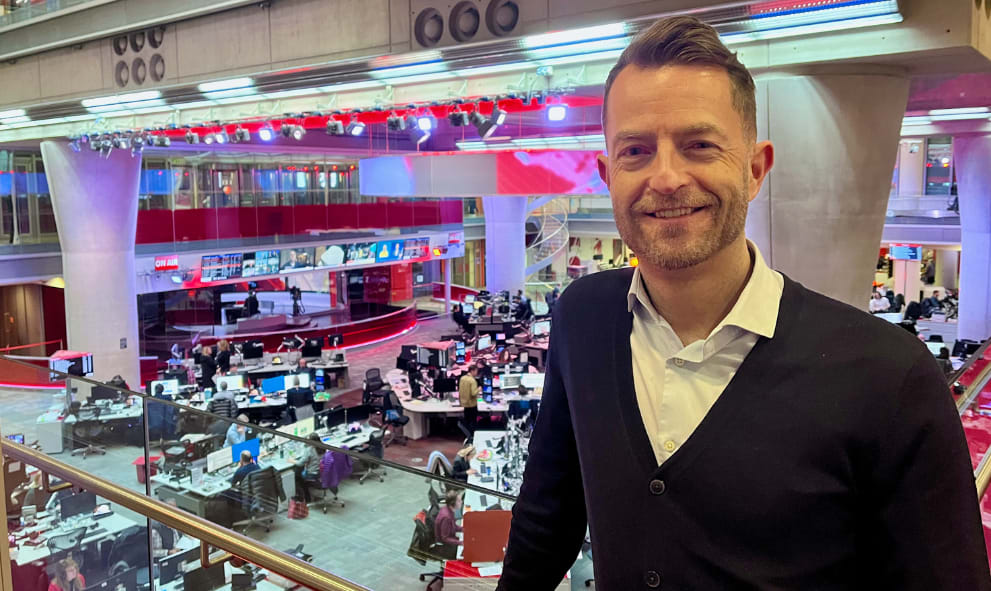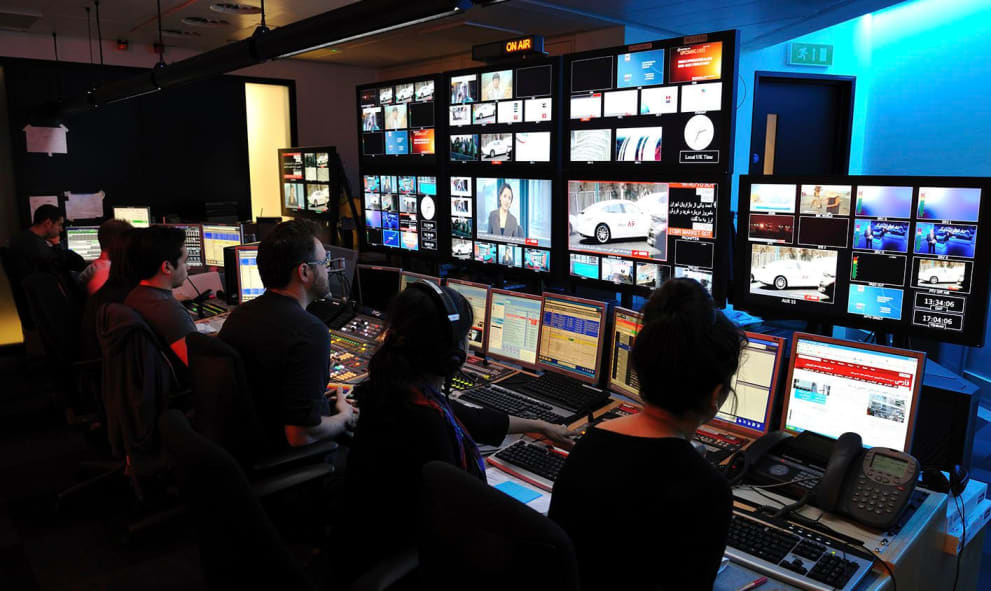The Employed Bar: Life as a BBC Lawyer

Ultimately, my job is to help our journalists do theirs.
Chris Loweth, BBC Commercial, Rights & Business Affairs Director
Chris Loweth is a member of Lincoln’s Inn and our Bar Representation Committee Vice Chair, and also is the Commercial, Rights & Business Affairs Director at BBC. In this article — first published in the Inn’s Annual Review 2022 — Chris offers an insight into what it’s like working at BBC. Since 2022, Chris has also won Employed Barrister of the Year in Commerce, Finance or Industry at the Employed Bar Awards in 2024.
Working at the BBC in 2022
Russia’s invasion of Ukraine in February 2022 heralded the start of another exceptionally busy year for BBC News. The UK government imposed sanctions on a range of Russian companies and banks within hours of military action starting. We were potentially unable to pay our 100 Moscow-based Russian service employees and local suppliers, at a time when the need for impartial, independent reporting from Russia could not have been greater. Providing advice on the effect of the sanctions and how to mitigate against them was my focus for the first few days and weeks of the war.
Days later, new laws which effectively criminalised independent, impartial journalism in Russia were enacted. In common with several media organisations, the BBC suspended the work of all its journalists and support staff within the Russian Federation whilst we assessed the full implications. I spent the first weekend in March seeking advice from Russian lawyers and considering its implications for our local teams and their work. We decided to move most of our Russia-based employees to locations outside Russia. Many may never be able to return to their homeland.
Meanwhile, the BBC World News channel was taken off air in Russia, our English and Russian language websites blocked, and access to our social media outlets suspended.
As the UK announced more sanctions on Russia, the Kremlin retaliated with sanctions on our own journalists and management. Urgent advice on the implications was required.
The safety of our teams in Ukraine was a prime concern. The BBC’s Ukrainian service employs over 60 people in Kyiv, in addition to colleagues from our UK services on deployment. One of the most vivid memories I have of those early days is being asked whether and how Ukraine’s mobilisation law might affect our journalists’ ability to continue their work from inside and outside Ukraine. The logistics of evacuating 60 staff and their families to safer locations called for immediate advice on contracting security support, employment contracts, and visas at a time when Ukrainian lawyers were themselves dealing with their own country’s invasion.

Reporting Iran: Inside BBC Persian
Away from Ukraine and Russia, the work is equally varied. For the last decade, the Iranian government has conducted a campaign of harassment and intimidation towards BBC News Persian journalists in the UK and their families in Iran. This has included death threats towards staff in London, their family members in Iran being interrogated, threats of imprisonment, online harassment and gendered attacks on women journalists, and a judiciary-imposed freeze on their assets in Iran. In some cases, family members are deprived of their liberty, held in degrading conditions, and ordered to tell their relatives to stop working for the BBC.
Working with Caoilfhionn Gallagher KC and Jennifer Robinson at Doughty Street Chambers, the BBC has filed urgent complaints against Iran with the United Nations amid escalating security concerns. In response the UN has raised ‘grave concern’ with Iran. The harassment has intensified in the wake of our reporting of the death of Mahsa Amini in September, and our work at the UN and beyond to demand an end to Iran’s attempts to censor our journalism continues. A new behind the scenes documentary examines the challenges faced by BBC News Persian teams and the personal sacrifices they make; it’s well worth half an hour of your time.
Press censorship is not confined to Russia and Iran. The World Press Freedom Index reported in 2021 that journalism is totally blocked, seriously impeded, or constrained in 73% of the 180 nations surveyed. BBC News has a presence in nearly 60 countries around the world, and much of my role centres around attempts to censor or undermine our reporting. This ranges from organising legal representation for journalists who have been detained or arrested, responding to overseas governmental regulatory and legal action against the BBC and those who work for it, and advising on how to comply with new laws and regulations aimed at restricting the press. We work with the BBC’s specialist in-house editorial legal and litigation teams, and a network of legal advisors around the world, to defend our journalism and ensure its availability to our audiences.
A whole host of other issues cross my desk on a weekly basis. Whether it’s advice on unfreezing one of our overseas bureau’s bank accounts, engaging a freelancer outside the UK, or growing the BBC’s audience by licensing our content to other providers, no two days are the same. Ultimately, my job is to help our journalists do theirs.
